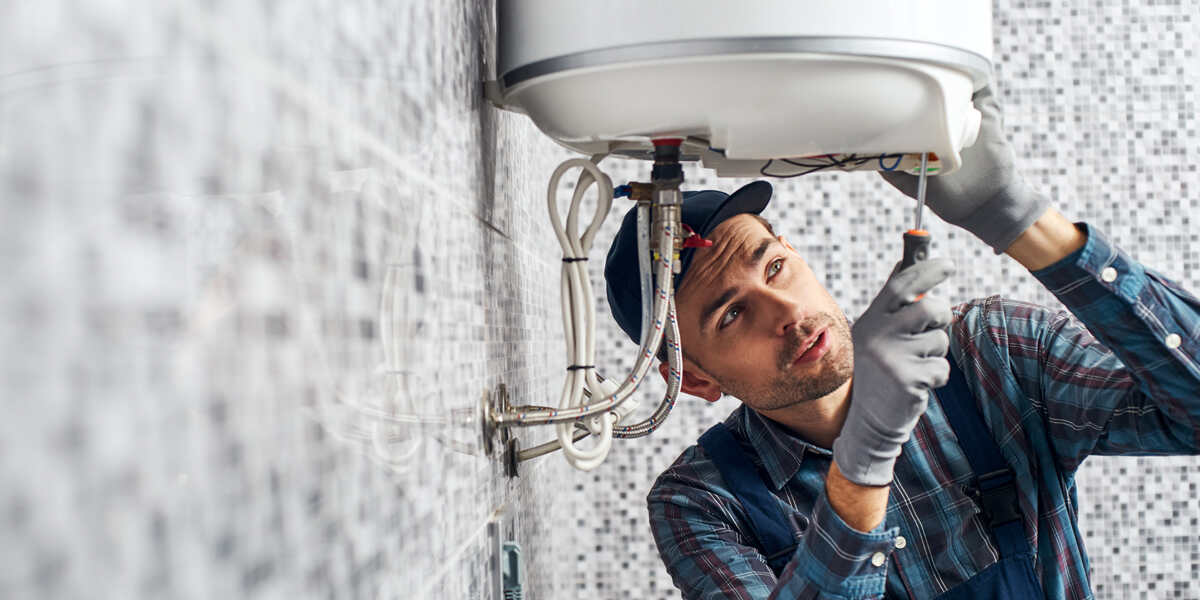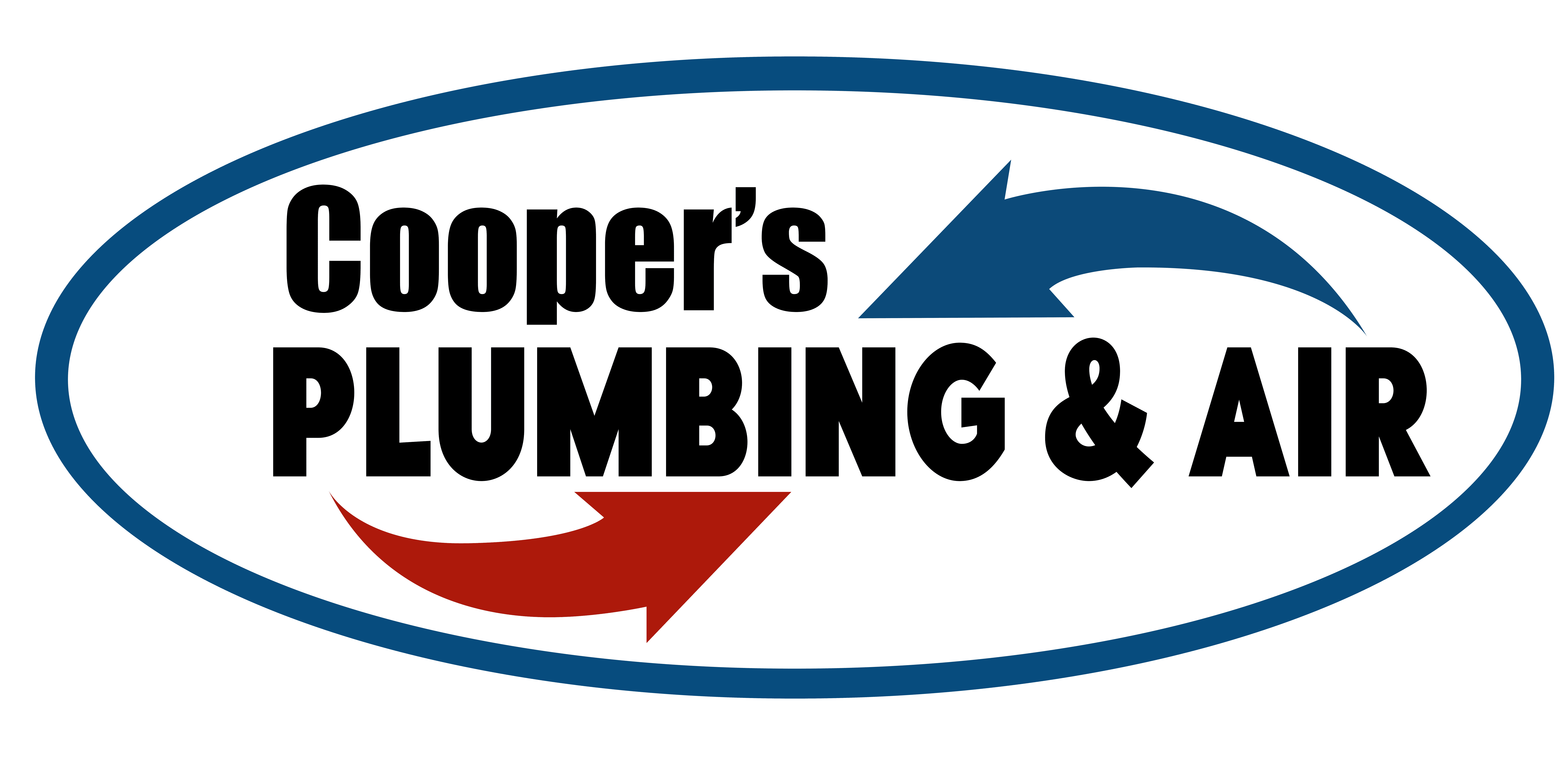
Manufacturers build water heaters with sturdy materials to prevent leaks and hot water loss when you need it most. However, a leak can still happen, reducing hot water availability or even causing hazardous spills on your property. Why would a water heater leak, and what can you do about it?
Cooper’s Plumbing & Air plumbers in Bainbridge, GA, provide fast and efficient services you can rely on. If you have a water heater leak, you can call us for a quick system diagnosis. For now, read more about what could cause a water heater leak and if you can prevent one from happening.
Water Leak Damage Control
Before identifying common water leak causes, you need to close the heater’s access to water. Water damage can cause serious issues in your property, from promoting mold growth to damaging the nearby walls or foundation. The leaking water can also contact materials nearby, like electrical tools or chemicals, further endangering your health.
If you already notice water leaking or pooling around your water heater, follow these steps to reduce the flow:
- Find the power supply to your water heater and shut it off. You should be able to locate the breaker switch in your electrical panel if you have an electric water heater. Homeowners with gas models should find the supply shutoff valve on the unit’s gas line.
- Close the shutoff valve for your cold water supply pipe. The pipeline should lead into your water heater unit and may have an identifying sticker or marker.
- Find where the water leak is coming from. If you cannot safely repair the leak or are unsure where the water is leaking from, call a trustworthy plumber for emergency repairs.
- Even if you cannot identify the water leak location, clean up water from the leak using household tools to prevent potential water damage. Paper towels, beach towels, mops, and other supplies may work well.
Some Common Causes of Water Leaks
If you are on Step Three and the water is not overflowing too much, you can take some time to find the source of the leak. Otherwise, you can leave the leak identification to the experts. Here are a few common water heater leak causes in Bainbridge:
A Too-Old Water Tank
Water heating practices, as recommended by the U.S. Department of Energy, suggest homeowners replace old water heater tanks by the presumed end-of-use time. Though, you may be wondering, “Why would a water heater leak just because it’s older?” That can happen because:
- All water heater tanks degrade over time.
- Older tanks require more repairs to fend off rust and corrosion, which can cause leaks.
- Using an old water heater tank can cause these problems to become more frequent.
After a certain point, you would spend less money getting a new water heater tank than holding onto the older one. The replacement could also help you avoid complete tank failure, which can cause flooding.
Too Much Pressure
Hot water creates steam, which puts the water tank under additional pressure. Pressure can build up too much within the tank if the water temperature is too high. Also, excessive pressure from inbound water can cause tank issues like cracks and leaks.
If the pressure becomes too much, water can start leaking out of any crack or loose part it can flow to. In severe circumstances, the water heater tank can explode, potentially causing severe burns or property damage.
To fend off pressure issues, ensure that incoming water stays at proper pressure levels and that you don’t set the heating temperature too high. You can do these by adjusting the pressure valves.
Pressure and Drain Valve Troubles
Of the main three valves you may need to adjust, two relate directly to water pressure:
- Drain valve
- Pressure relief valve
- Temperature pressure valve
Temperature and pressure relief (T&P) valves have different functions from the drain valve. The drain valve allows you to drain the water tank for maintenance or replacement. T&P valves automatically activate at preset temperature or pressure values to release heat, gas, or fluid.
If any of these systems is loose or faulty, your tank could have pressure issues, or water could leak from loose components. You can generally fix a leaky or faulty valve with a pipe wrench or by replacing it. If you have concerns about the process or understandably hesitate to work near such hot water, our plumbers can do it for you.
Too Much Sediment
While cleaner than general lake water, the water coming into your property often has heavy metals, particles, and other contaminants.
Still, with the sturdy materials we use for water heaters, why would a water heater leak just from some sediment? Moreover, water heaters have an anode rod, which attracts corrosive materials and keeps them from wasting the tank away.
These failsafe measures are why you should invest in consistent water heater maintenance. If the anode rod corrodes completely, the sediment and corrosive materials settle in and eat away at the tank. Also, contaminants not attracted to the anode rod can collect as sediment buildup at the bottom of the tank, causing corrosion over time.
A yearly tank cleaning and periodic anode rod checks can help keep your tank from leaking before the end of its lifespan.
Cooper’s Plumbing & Air: Your Expert Plumbers in Bainbridge, GA
While many other issues can cause water heater tank leaks, like internal tank issues or loose inlet and outlet connections, we can handle them all. Cooper’s Plumbing & Air has helped Bainbridge, Georgia, and nearby communities with their plumbing, AC, and heat pump issues for over 20 years. We also offer flat-rate pricing, so you know what you’re paying for.
Why would a water heater leak suddenly, and who can you call if it happens at night? Our team has you and your household covered with licensed and insured plumbing care no matter the time. Call our industry-leading team at Cooper’s Plumbing & Air at 866-464-7132 for 24/7 emergency services in Bainbridge today.
